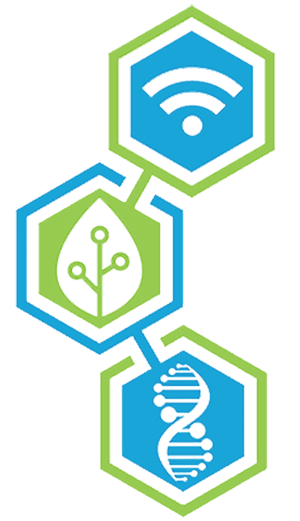I'm pleased to announce the first ever 'Genomics in the Jungle' field course, which will take place July 22 - August 4! https://fieldprojects.org/course/genomics-in-the-jungle/
My portable lab setup that I recently deployed in Peru to sequence long stretches of ribosomal DNA from plants and arthropods.
In the past I have worked with Field Projects International to co-run a two week Field Entomology course, and this time around we will aim to apply portable technology to a field course in the Peruvian Amazon.
Here is a short description for the upcoming trip below:
Course Description
Biological research is turning to genetic research methods for a deeper look into the factors that encode behavior and physiology. We use genetic techniques to determine species delimitations, define populations, understand mating systems, explain behavioral differences in foraging efficiency, screen for disease, conduct paternity studies, evaluate immune status and functioning, and explore microbiome diversity… and these are just a few examples of the full breadth of the field as applied to wildlife biology. The field of genetics is revolutionizing biological research, and in the past few years we have even witnessed the successful deployment of instruments that enable molecular work to be conducted ‘on-the-fly’ and in the field. These new tools are minimizing the hassles and barriers associated with transporting samples around the world to distant labs that possess the equipment and resources to extract, amplify, and sequence DNA. In many ways, this new technology is democratizing wildlife research by empowering field scientists all around the world with genetic tools to directly advance their research and conservation initiatives.
This course will take you to the Peruvian Amazon, where you will learn how field research is conducted, assist in sample collection, and then actually extract, amplify, sequence, and interpret genetic data to answer several practical research questions about wildlife ecology and natural history. It will take place at the Inkaterra Field Guides Station, which is the site of the Green Lab, the world’s first tropical rainforest molecular genetics laboratory. You will go from sample collection to sequence analysis directly in the rainforest. This course is will provide an introduction to next-generation primatologists and biologists, who will gain not only the skills requisite for field research but the technical know-how to employ genetic research tools in the field.
Research Topics
In this course, we will focus on three specific cases in which cutting-edge genomics can help us solve mysteries common to wildlife research in the field. The ultimate goal of all of these projects will be to use a MinION, a USB-sized powerful sequencer that is revolutionizing how we do genomics in some of the craziest places on the planet.
The MinION has been used to:
do whole-genome sequencing to identify species with PCRs in under 40 minutes and whole genome amplification in under 100 minutes
conduct real-time DNA sequencing in a remote rainforest by a course instructor
sequence DNA offline in the Antarctic and even on the International Space Station in outerspace!
We will study three specific cases (class size and time permitting):
DNA fingerprinting
The effects of captivity on microbiome diversity
Environmental DNA
We will try to answer a few additional questions with all case studies:
Can we use the What’s In My Pot (WIMP) workflow to accurately classify these species to a reference database in real-time for all of the case studies?
How many different kinds of samples can we multiplex at one go on a MinION?
Does the choice of DNA extraction kit affect the outcome?
Does the length of time we let the MinION run for affect the accuracy of our species identifications?
If this sounds interesting to you or someone you know, please check out the link for more information https://fieldprojects.org/course/genomics-in-the-jungle/
It's an exciting time to be a biologist!


